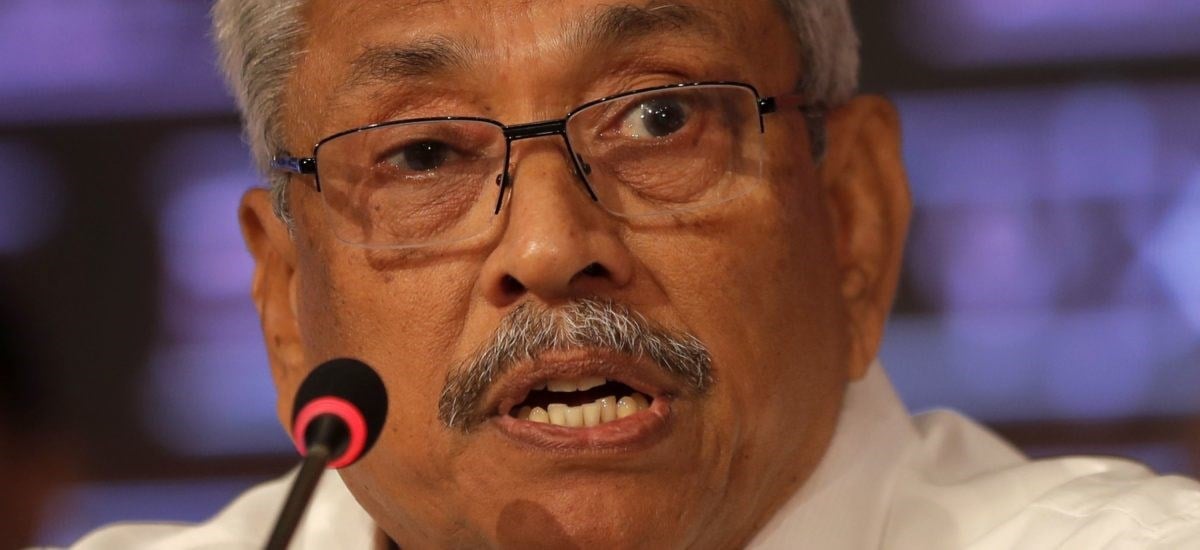Rajapaksa flees to Maldives, Sri Lanka declares state of emergency
Protests grow after the Sri Lankan president fled the country in a military aircraft.
-

Gotabaya Rajapaksa, the fled Sri Lankan president.
Just hours after Sri Lankan President Gotabaya Rajapaksa fled the country to the Maldives in a military aircraft, Colombo announced an indefinite nationwide state of emergency on Wednesday, according to the Prime Minister's office.
This comes a day after Rajapaksa's first attempt to leave the country before airport staff foiled his plan and forced him to retreat.
"Since the President is out of the country, an emergency has been declared to deal with the situation in the country," Dinouk Colombage, spokesman for the Prime Minister and current acting President Ranil Wickremesinghe, told AFP.
In addition, police revealed that they were imposing an indefinite curfew across the Western Province to contain growing protests, as requested by Wickremesinghe.
Thousands of protesters stormed the prime minister's office, at which police threw tear gas to disperse them, as reported by AFP. The protesters demanded that Wickremesinghe resign along with Rajapaksa.
"There are ongoing protests outside the Prime Minister's office in Colombo and we need the curfew to contain the situation," a senior police officer told AFP. The police contended that they were following orders to suppress the demonstrators due to their role in the dysfunction of the state.
According to the Adaderana news portal, the Prime Minister also ordered arresting protesters who behave "inappropriately" as well as their vehicles.
On Saturday, thousands of men and women stormed Rajapaksa's residence, which drove him out to escape to a military base, later fleeing the country on Wednesday, the day he previously promised to resign on.
In April, all 24 ministers of Sri Lanka's cabinet resigned from their posts amid protests and clashes in the capital, Colombo.
Sri Lanka has been facing a severe shortage of fuel, medicine, food, as well as record inflation rates.
Read more: Emerging economies challenged with historic default on foreign debt

 2 Min Read
2 Min Read










